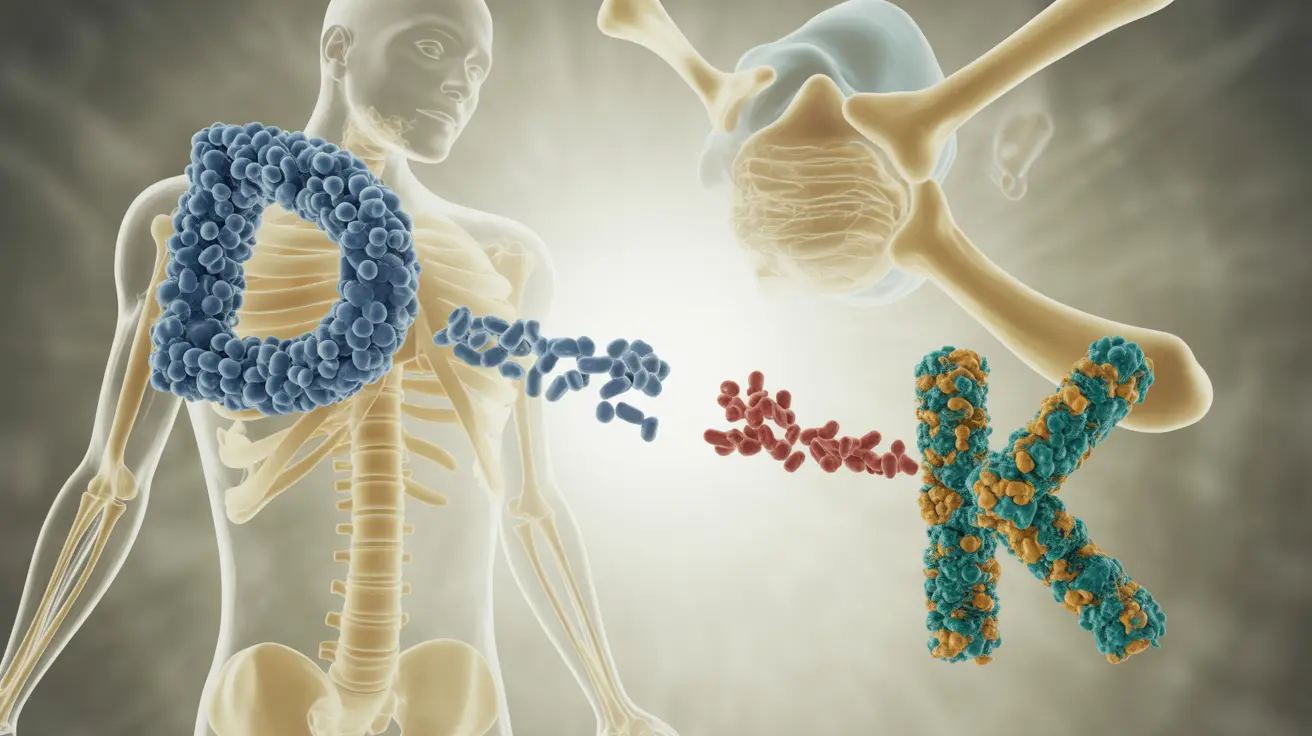The combination of vitamin D and vitamin K has gained significant attention in the health and wellness community, and for good reason. These two essential nutrients work together in powerful ways to support overall health, particularly when it comes to bone strength and cardiovascular function. Understanding how these vitamins complement each other can help you make informed decisions about your nutritional needs.
How Vitamin D and K Work Together
Vitamin D and vitamin K form a crucial partnership in the body, each playing distinct yet complementary roles. While vitamin D helps your body absorb calcium from your diet, vitamin K ensures that calcium is properly utilized and directed to where it's needed most – your bones.
The Calcium Connection
When vitamin D increases calcium absorption, vitamin K steps in to activate specific proteins that help bind calcium to bone tissue. This teamwork is essential for maintaining strong, healthy bones throughout life. Without adequate vitamin K, the calcium that vitamin D helps absorb might not be properly utilized by your skeletal system.
Benefits for Bone Health
The synergistic relationship between vitamins D and K is particularly important for bone health. Together, these nutrients help:
- Increase bone mineral density
- Support proper bone formation
- Reduce the risk of fractures
- Maintain skeletal strength as you age
Cardiovascular Health Benefits
Beyond bone health, the vitamin D and K partnership plays a crucial role in cardiovascular health. Vitamin K helps prevent calcium from accumulating in blood vessels, while vitamin D supports proper blood vessel function. This combination may help maintain healthy arterial function and support overall heart health.
Natural Food Sources
Getting these vitamins through your diet is possible through various food sources:
Vitamin D Sources
- Fatty fish (salmon, mackerel, tuna)
- Egg yolks
- Fortified dairy products
- Mushrooms exposed to UV light
Vitamin K Sources
- Dark leafy greens (kale, spinach, collard greens)
- Brussels sprouts
- Broccoli
- Fermented foods like natto
Safe Supplementation Guidelines
While supplementing with vitamins D and K can be beneficial, it's important to follow proper dosage guidelines and consult with a healthcare provider before starting any supplementation regimen. This is particularly important if you're taking blood-thinning medications, as vitamin K can interact with these drugs.
Frequently Asked Questions
What are the benefits of taking vitamin D and vitamin K supplements together?
Taking vitamin D and K supplements together can enhance calcium absorption and proper utilization, support bone strength, and promote cardiovascular health. The combination helps ensure that calcium is directed to bones rather than accumulating in soft tissues.
How do vitamin D and vitamin K work together to support bone health?
Vitamin D helps your body absorb calcium from your diet, while vitamin K activates proteins that bind calcium to bone tissue. This collaborative action helps maintain and improve bone density and strength.
Can vitamin K help prevent calcium buildup in arteries and improve heart health?
Yes, vitamin K helps activate proteins that prevent calcium from depositing in blood vessels while directing it to bones. This action, combined with vitamin D's cardiovascular benefits, may help maintain arterial health and support overall heart function.
What foods are good natural sources of vitamins D and K?
Good sources of vitamin D include fatty fish, egg yolks, and fortified dairy products. Vitamin K is abundant in dark leafy greens, Brussels sprouts, and fermented foods. Consuming a varied diet rich in these foods can help ensure adequate intake of both vitamins.
Are there any risks or side effects of combining vitamin D and K supplements?
While the combination is generally safe for most people, those taking blood-thinning medications should consult their healthcare provider before supplementing with vitamin K. It's important to follow recommended dosages and seek professional guidance to avoid potential interactions or adverse effects.




